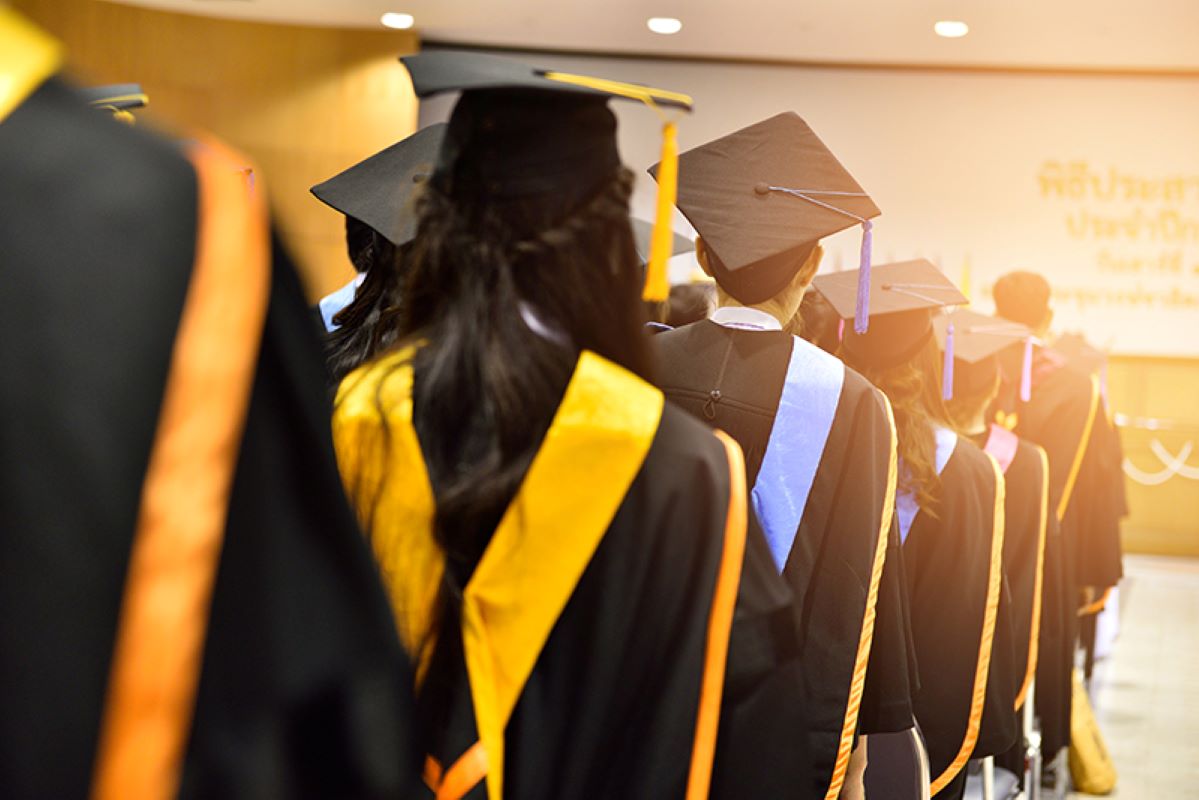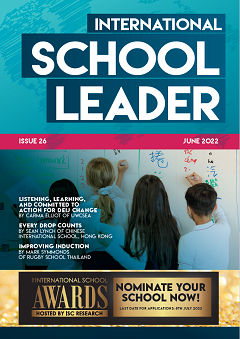By Anson Wong
Celine* is a 20-year-old international school alumna who attended international schools in the Asia-Pacific for 13 years. She now studies Business Administration at her country’s national university. In this interview, Anson explores Celine’s choices, the challenges she faced and how being an international school student influenced her experience. *Celine is a pseudonym.
Anson: What pathway did you choose after graduating from your international school?
Celine: I decided to go to a university in Asia for two reasons. The primary reason was a financial one: going to international schools put a big financial pressure on my parents. I was hoping I could relieve some financial burden off their shoulders by paying in-state tuition and taking advantage of scholarship opportunities for national citizens. Luckily, attending an international school for over 12 years qualified me for the 12-year application track in my country. This meant as an expatriate national citizen, I didn’t need to take the national aptitude test or compete with local students for admissions which was an additional advantage. My second reason to return to my home country for university was to experience the culture. Growing up abroad, I’ve heard a lot of stereotypes about what it was like to live there but never got to experience it myself.
Anson: How did attending an international school affect your decision?
Celine: Until 11th grade, I was sure that I would go to my home country for university. My sister only applied to universities in our home country and I naturally felt I should do the same. This was interesting because growing up in international schools, I was always surrounded by students who were sure they would go to the UK or US. There weren’t many students who wanted to go to Hong Kong, Singapore or other Asian countries.
Despite growing up in a school culture that heavily championed applying to Western universities, my internalised idea of going home was so strong that my peers’ decisions didn’t influence me. This certainty changed when college application season came around in 12th grade. I started feeling a need to apply for US colleges. Hearing and seeing all the notifications about US deadlines and applications made me feel like I was missing out on this huge opportunity. Even if I ultimately had no intention of going to the States, I wanted to apply just to see if I had a chance and where I stood among the applicants.
Ultimately, I decided against applying to US colleges because I realised it didn’t align with my goals. In fact, completing the applications would have taken time away from studying and getting good IB predicted grades which are extremely crucial for admissions into universities in my home country. This decision was not easy to make, especially when my school’s college counselling and resources heavily revolved around applying to the US and UK.
Anson: Did you experience any sense of resistance to your decision?
Celine: Yes, there was a teacher who asked me why I would go to university in my home country. It wasn’t so much questioning why I didn’t choose the US, but more specifically why I would choose to go back – as if it was a step down. It made me feel doubtful about my decision. But I reasoned with myself that the teacher just didn’t understand the full picture.
During my first college counselling meeting with my parents and counsellor, I brought up that one of my reasons for applying to my national universities was financial. The counsellor started pushing scholarships and opportunities that I could pursue. I felt a little uneasy and it made me think I was making the wrong decision because she had a lot more experience. Looking back, I understand where she came from. As a counsellor, you want to help your students to the best of your ability to eliminate obstacles that prevent them from pursuing big goals. But then again, going to my university is a great opportunity in itself. I wish my teachers and counsellors didn’t see my situation as a lost opportunity just because I chose a college in an Asian country.
Anson: On reflection, how do you view your decision now?
Celine: None of the resistance I encountered steered me away from going to my home country for university. However, my fear of missing out has stayed with me throughout my college experience. To a certain extent, I feel a sense of ‘opportunity guilt’ for not taking advantage of the resources available for me to go to the US for college. Coming back to my home country made me regret not taking full advantage of the privilege that I had as an international school student. If I want to go abroad now, I feel I have to pave a road that was already paved for me in my international school. This fear and guilt materialised when I looked at the exchange programmes at my university. Some exchange programmes only accept one student per cycle – that is how competitive it is. I feel like I just shut close that door that had been open to me for so long. It also doesn’t help that my professors keep emphasising how far behind my country is, and that new ideas come from the West, especially in my field of study.
Anson: What was it like for you to step away from international education and be part of the local culture?
Celine: This question is so interesting because it was really hard for me to step out of that bubble. I was scared that by highlighting my differences I would make people think I don’t belong here. Initially, when friends asked about my high school experience I would share, without thinking much of it. I later regretted that because I realised there were so many parts of my experience that were so filled with privilege that it may have come off as bragging; things like travelling to different cities for a sports or an orchestra event. I automatically felt a wall come up because it was just so different from what they experienced. I started to regret sharing and, for a while, I would downplay my experience because I felt like they wouldn’t understand. In my home country, where there’s a lot less of a focus on extracurriculars and a stronger focus on academics, I didn’t want to undermine my own credibility for being at the university by sharing that I spent a lot more time travelling for orchestra and sports instead of studying, yet I still got accepted into the same university as the one they studied so hard to get into. There have been instances where international students have been verbally attacked by local students because they are deemed undeserving of being there due to the different admissions requirements.
Anson: How did your experience influence the way you view yourself?
Celine: As graduates of an international school, we were told that we are global citizens. When I hear the term global citizen, I feel a little embarrassed because I don’t think I am anywhere near being a global citizen; I still feel like I’ve only experienced a tiny part of the world. It has been hard for me to dissociate with the privilege linked with my identity as an international school student. Having the experiences of being an international school student hindered me from being a global citizen in the sense that it hindered my ability to connect with the local culture and I didn’t know how to navigate that.
Anson: What opportunities has this experience given you?
Celine: I’ve become really interested in social issues specific to my country. A lot of children with a multicultural background get bullied in school and this unique experience of being an international school alumna has given me a unique perspective that I can apply to help service programmes here that support these kids.
My background has also led me to opportunities to represent my country in international dialogues about important issues such as sustainability.
Anson: So what is your message to international school teachers and leaders?
Celine: I think my international school experience has truly been transformative and I am extremely grateful for the opportunities and experience. However, educators should make a greater effort in understanding what students experience at home, and the differences between cultures. Throughout my international school experience, there were many times when I felt my culture was mocked or looked down upon. For instance, my sports coaches (who were also my academic teachers) thought it was outrageous when I wanted to spend more time on my academics instead of sports, but within my own culture, students are praised for being studious and perceived as hardworking. I wish educators were more mindful of these cultural differences rather than forcing idolised Western values on us. Whilst those values are supposedly ideal, the lack of empathy and understanding for these nuances make it hard for students like me to integrate into the school community and seek counsellors’ and educators’ support. It would be a lot easier for students like me to integrate into the international school community if teachers approached these nuances with more empathy.
 Anson Wong interviewed Celine. Anson was an intern at ISC Research during the summer of 2021. As a former international school student herself, her work aimed to amplify the student voice in the international school sector. Anson attended 15 years of international school and graduated from the International School of Beijing in 2019. She is now an undergraduate student at UC Berkeley majoring in Psychology and Cognitive Science with a minor in Early Development & Learning Science.
Anson Wong interviewed Celine. Anson was an intern at ISC Research during the summer of 2021. As a former international school student herself, her work aimed to amplify the student voice in the international school sector. Anson attended 15 years of international school and graduated from the International School of Beijing in 2019. She is now an undergraduate student at UC Berkeley majoring in Psychology and Cognitive Science with a minor in Early Development & Learning Science.
Subscribe to ISL Magazine for more!



